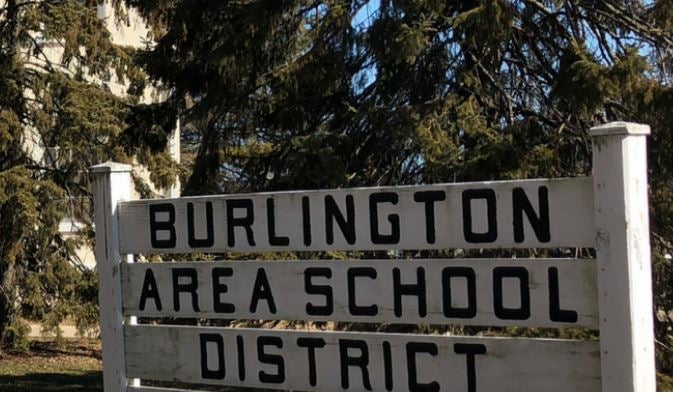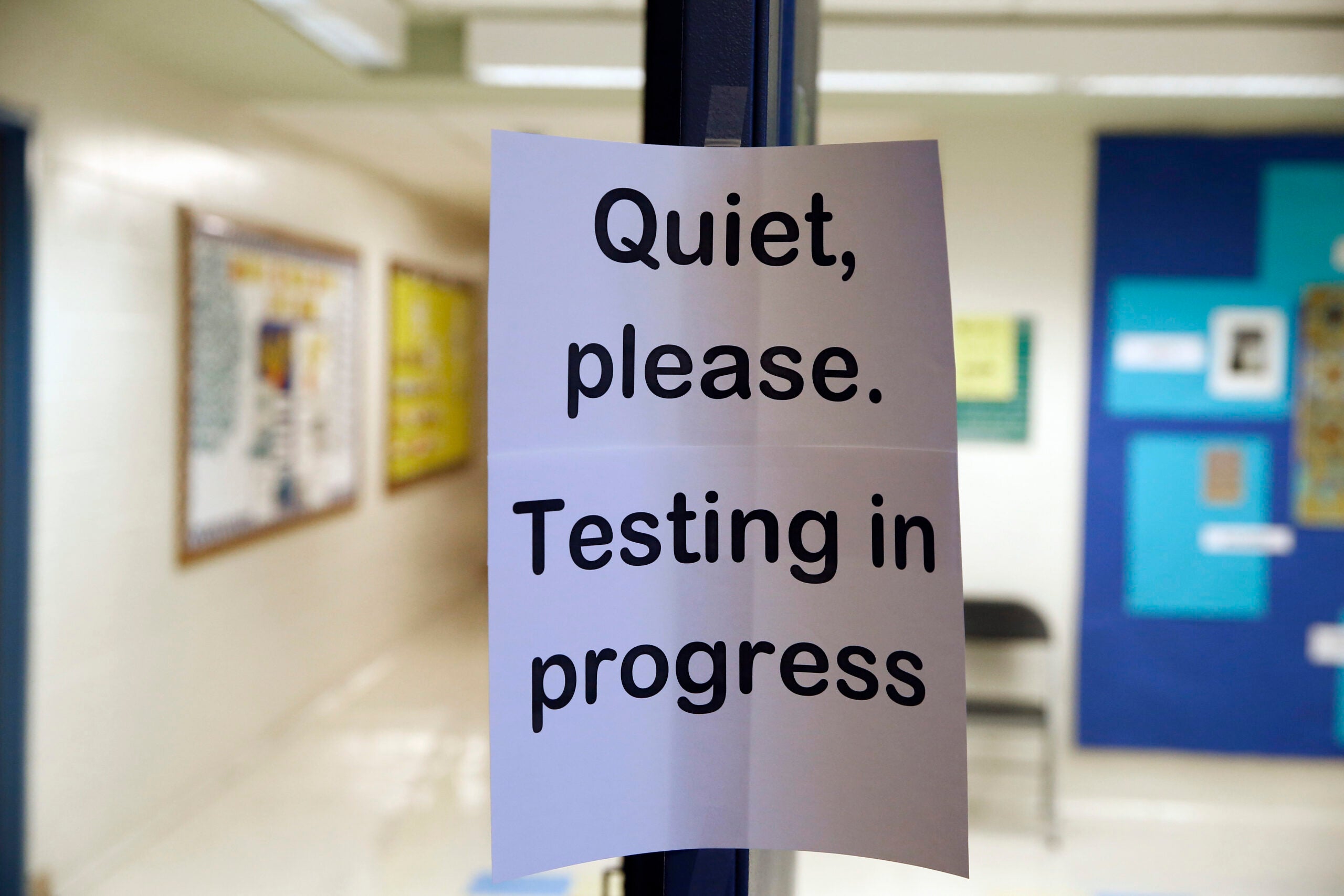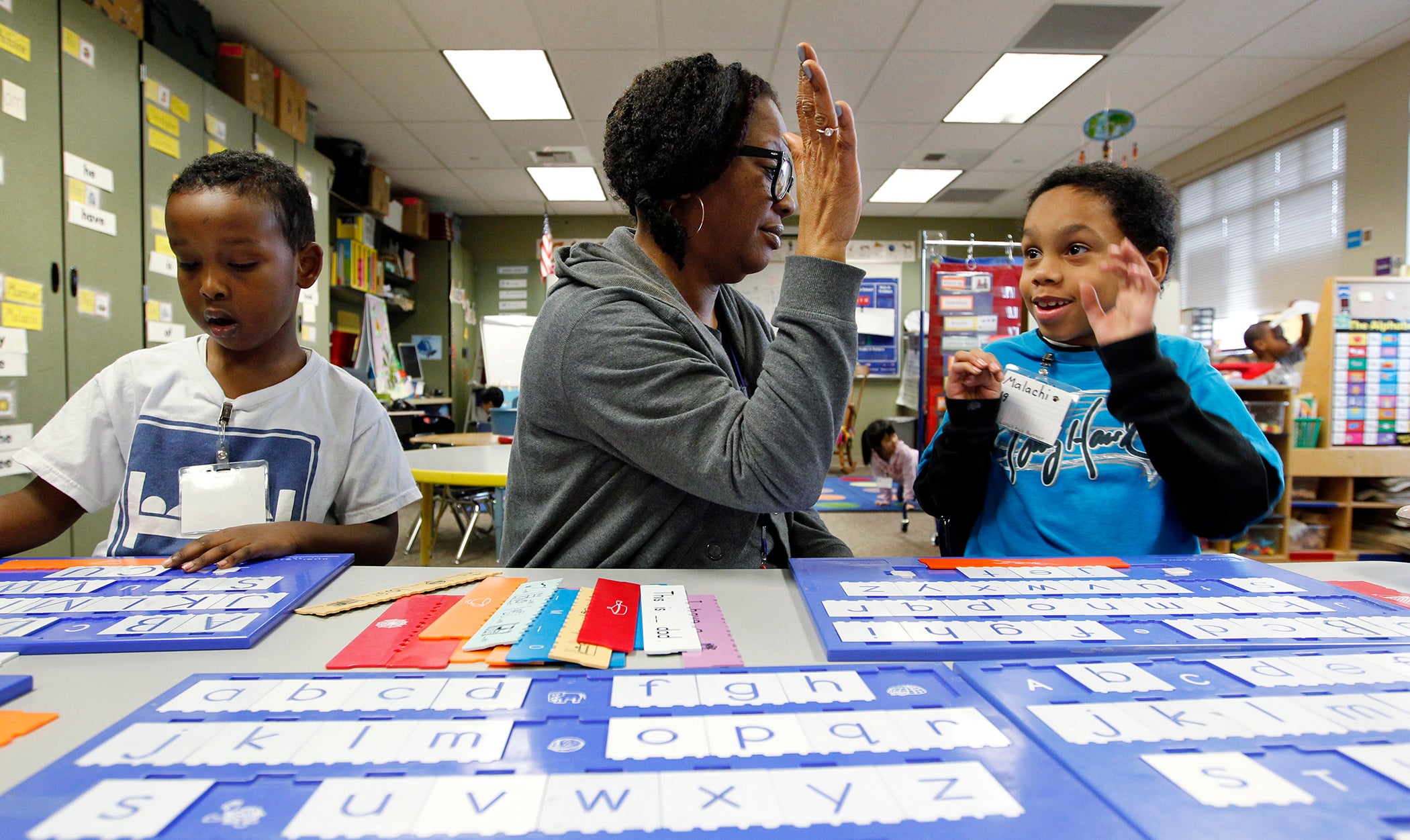The Burlington Area School District has 30 days to submit a corrective action plan to deal with its racially hostile environment, discriminatory discipline practices and other issues identified by the state Department of Public Instruction.
DPI got involved after Darnisha Garbade, the parent of two Burlington students, appealed the school board’s initial response to her complaint about a series of racist incidents involving her two daughters. Garbade listed so many incidents from the period when her children were 9 and 12 years old to when they were 12 and 15, respectively, that she ran out of room on the district’s formal complaint form.
She said that she is pleased with the DPI’s decision.
Stay informed on the latest news
Sign up for WPR’s email newsletter.
“I’m excited that DPI, for the most part, ruled in our favor. I’m glad that they are not mincing words in their ruling when it comes to the Burlington school district and the racially hostile environment that they have basically been contributing to for students of color,” said Garbade. “In the same token, I am not happy about the district’s response to what DPI has decided. It seems they have taken a defensive approach, which is what they have been doing this entire time.”
Burlington Superintendent Steve Plank released a video statement in response to DPI’s order. The district has 20 days from the Friday ruling to contest it, but hasn’t said whether it plans to do so.
“Even though the ruling is difficult to read, we respect the expertise of DPI, and want nothing more than for every student we serve to feel a sense of belonging at school,” Plank said. “The Burlington Area School District would never intentionally treat Black and brown students differently based on race — we most certainly regret leaving anyone impacted or feeling this way.”
DPI’s order required Burlington school officials to lay out its plans on four fronts:
- Prevent further instances of discrimination in discipline.
- Adequately redress the racially hostile environment present in the district.
- Review its past reporting on discrimination complaints to ensure compliance with district policies and procedures and enact clear guidelines for future reporting.
- Revise its policies and procedures to ensure they are in compliance with the Wisconsin Administrative Code.
Plank said in his video that Burlington has already made progress on improving reporting procedures, adopting an anti-racism policy and initiating education and training.
The DPI decision is heavily redacted for the privacy of Garbade and her children, but it notes that the students were subjected to verbal harassment. It also lists 19 separate incidents of students being subjected to racial comments and slurs from 2016 until 2020, when Garbade filed her complaint. It also shows that district officials were aware of those incidents — both because they were in the school’s own disciplinary record and because Garbade repeatedly brought it up to administrators and at board meetings.
DPI officials said in their report that district officials failed to appropriately respond. It found that suspension rates for students of color were 25 times higher than their white counterparts.
Garbade said she has experienced that directly. She said one of her children was suspended for bringing a toy Airsoft gun to school for show-and-tell in 2017, in violation of the district’s policy banning weapons and imitation weapons. A white student who brought a jack knife to the same school in the same year was given detention, a lesser punishment.
“It was really alarming to me that you have 39 Black students that were being suspended almost 25 times more than 2,505 white students,” Garbade said of the disparities.
Garbade said she submitted between 50 and 100 pages of emails between her and district officials in response to the incidents. She said she thinks that helped DPI find that district officials had a systemic problem and weren’t adequately responding. She said she advised other families to get the same kind of paper trail.
“Document, document, document. Get it all in writing, put it all in emails,” she said.
When teachers, administrators and others got her emails and wanted to talk in person or on the phone, she said she pushed back, wanting a record.
Garbade and others formed the Burlington Coalition for Dismantling Racism, a group that helps parents navigate the complaint process and works with community members, including the teacher who was disciplined for teaching about Black Lives Matter, to push for equity and anti-racism in schools. Garbade has done the same with Communities Ending Racism Now, which is doing the same at a statewide level.
“We were able to meet other families all over Wisconsin who were going through almost a carbon copy of what my children were going through,” she said. “Children and families are dealing with the same thing — they’re being spit on, being called the n-word, being teased because of how they dress or how dark their skin is or what their religion is.”
The DPI order itself cites past issues in two other school districts, River Falls and Platteville, which led to investigations by the federal Office of Civil Rights. In the past five years, 14 complaints alleging racial discrimination have been appealed to DPI. In six cases, DPI officials found the districts had correctly determined there was no discrimination. In two, the parties settled. The River Falls complaint was withdrawn so it could be taken to the Office of Civil Rights instead. Elmbrook, like Burlington, got an order in its case, and two cases that were filed in 2021 — in Cedarburg and the Madison Metropolitan School District — are still awaiting a decision.
Additionally, a parent sued the Kettle Moraine School District over racial bullying and harassment earlier this school year, and Sun Prairie teachers have been placed on paid leave after teaching students a lesson plan that asked how they would “punish” a slave.
David Stovall, a criminology professor at the University of Illinois at Chicago who studies the intersection of race and school, said that while some districts might be called out through complaint processes like DPI’s or via lawsuits, racism in schools isn’t confined to particular individuals or districts.
“There’s this idea that if we don’t say anything, that it doesn’t exist,” he said. “But what we actually see is that the problem festers even deeper.”
Garbade moved her daughters out of the district before this school year started, which she said was good timing. This year saw several more incidents, including instances of people “Zoom-bombing” online lessons and using hateful language. Still, she said, recovering from years of incidents will take time.
“I do see that my children are really traumatized by all these things that took place there, and I think they essentially have a racial trauma-based PTSD,” she said. “There’s still so much trauma and baggage that’s now surfacing.”
She said moving also didn’t solve all the problems. Racism has shown up in their new school, too. She said she’s had to challenge teachers who aren’t aware that the things they’re doing are harming children of color.
“I will say that it’s not as blatant and severe and as out in the open in the current school district as it was in Burlington, but sometimes that actually makes it worse, because it’s so hidden,” she said.
Garbade said she’s bracing for a longer fight, whether the district appeals DPI’s order or not. She said the Burlington Coalition for Dismantling Racism already has six more complaints in the works, with some in the process of being appealed to DPI and some still working their way through the district.
“We’re not finished yet, so even though this is a big win, this is just one discrimination complaint, and so no, it’s going to be a long road,” she said.
Wisconsin Public Radio, © Copyright 2025, Board of Regents of the University of Wisconsin System and Wisconsin Educational Communications Board.





